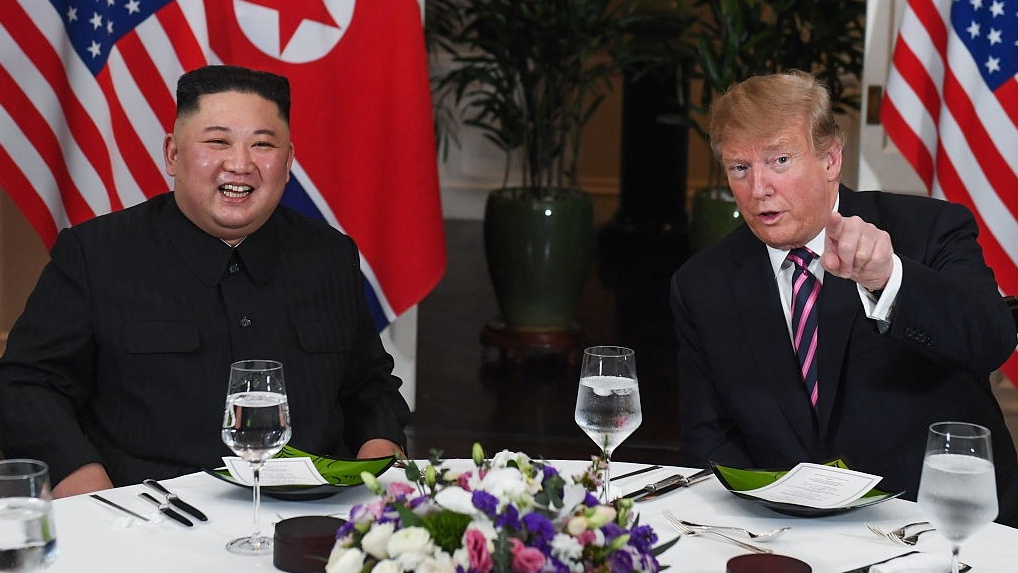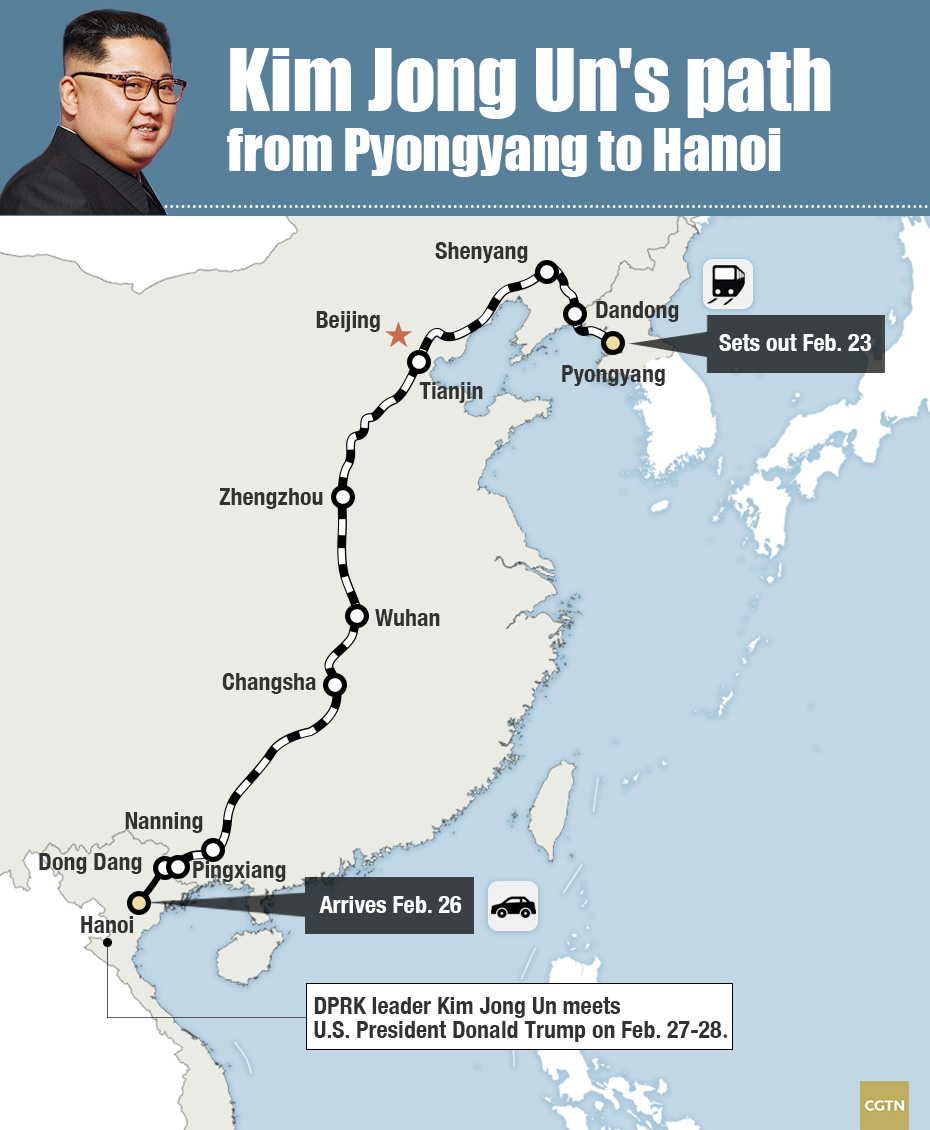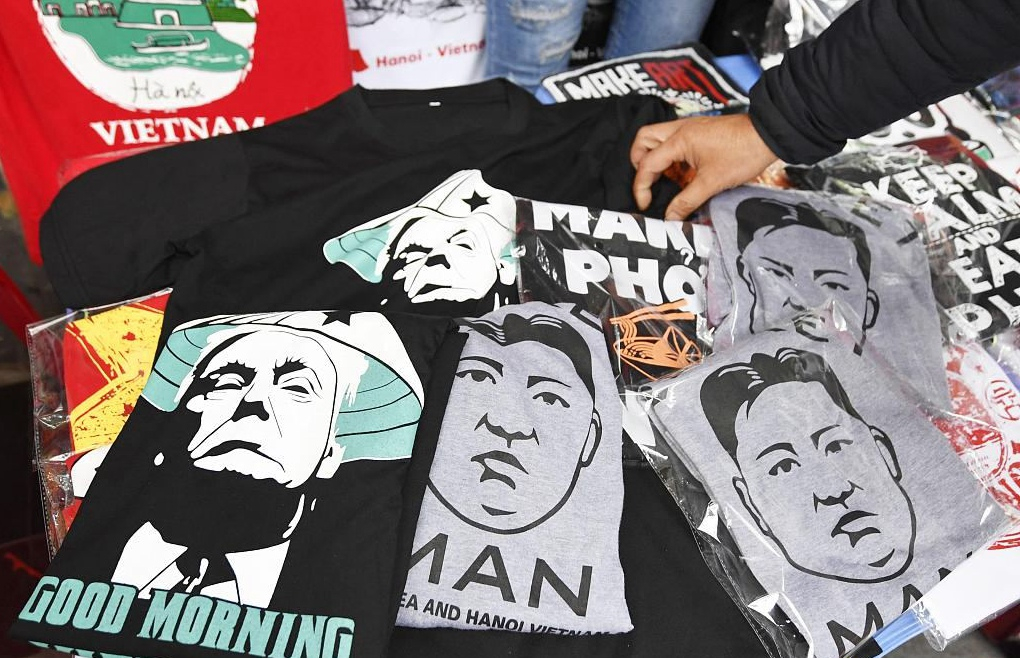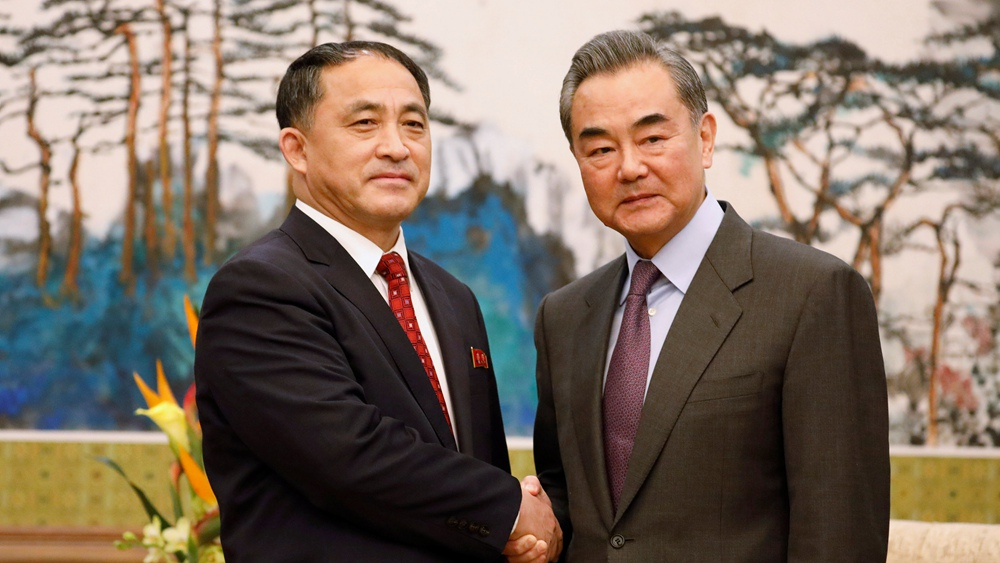
World
13:55, 01-Mar-2019
What does China's leverage mean for Trump-Kim summit?
By Wang Mengjie

Seems like the bromance didn't save their dilemma - again - as the second hand-shaking between U.S. President Donald Trump and the Democratic People's Republic of Korea (DPRK)'s top leader Kim Jong Un ended without a joint agreement.
But China's "big help" on the issue was still highlighted by the U.S. president in addressing Korean Peninsula issues.
Traffic support
Ahead of the second Trump-Kim summit in Vietnam, Beijing offered the DPRK leader a secure stopover in China before he headed to Hanoi.

Kim departed from Pyongyang on his personal train on February 23 afternoon, and crossed into Dandong, northeast China late the same day.
The border city geared up, with heavy security deployed at the bridge that spans over the Yalu River, which serves as the border, and connects the two countries. Residents and visitors have been evacuated from the riverside park, while hotels have halted reservations with a view of the river since last Friday.
Kim's train then arrived at Vietnam's Dong Dang Station near the border with China on the morning of February 26. The 4,000-kilometer journey from Pyongyang to Dong Dang took him more than two-and-a-half days. From there, he made his way to Hanoi by car.
Close ties with the DPRK
Besides for traffic support, China also played a major role in solving the nuclear issue on the Korean Peninsula.

T-shirts with images of DPRK leader Kim Jong Un and U.S. President Donald Trump are on sale at a store in Hanoi, Vietnam, February 23, 2019. /VCG Photo
T-shirts with images of DPRK leader Kim Jong Un and U.S. President Donald Trump are on sale at a store in Hanoi, Vietnam, February 23, 2019. /VCG Photo
Kim has made four foreign trips to China in 10 months, and met with Chinese President Xi Jinping to discuss China's efforts to denuclearize the Korean Peninsula. Trump has also praised Xi as a "great leader who is highly respected all over the world" and thanked Xi for helping to mediate with Pyongyang.
Read more:
China sticks to settling disputes through peaceful dialogue, supports the denuclearization of the Korean Peninsula, backs all the resolutions adopted by the United Nations Security Council on the nuclear issue of the Korean Peninsula, said Chen Gang, assistant director and senior research fellow of the East Asian Institute, the National University of Singapore..
A slow deal is better than bad one
The Chinese side urged for patience in DPRK-U.S. talks as it was important not to rush into a bad deal.
00:35

During a meeting with DPRK Vice Foreign Minister Ri Kil Song on Thursday in Beijing, shortly after the end of the Trump-Kim summit, Chinese State Councilor and Foreign Minister Wang Yi urged the two sides to stay committed to the goal of achieving complete denuclearization of the Korean Peninsula and building a peace regime.
Read more:
Wang called on Pyongyang and Washington to maintain patience, continue their dialogue, and meet each other halfway, adding that China is willing to continue playing a constructive role in issues related to the peninsula.
Commenting on the summit, Wang said DPRK-U.S. talks have entered a "deep-water zone" and it is inevitable that difficulties would emerge in one way or another. He underscored China's optimism in the prospect of the talks.

SITEMAP
Copyright © 2018 CGTN. Beijing ICP prepared NO.16065310-3
Copyright © 2018 CGTN. Beijing ICP prepared NO.16065310-3